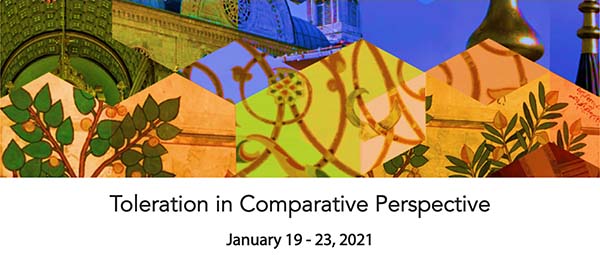Toleration, Religion, and the Enlightenment
Panel: Text, Translation, Interpretation – Saturday, January 23 (11am – 1pm PST // 2pm – 4pm EST)

William J. Bulman is a historian whose work focuses on the political conflicts over religious pluralism, particularly in England and its empire in the seventeenth and early eighteenth century. His research illustrates how the violence of the religious warfare that defined European history in the mid-seventeenth century shaped the attempts at supplying novel political solutions in the decades following. His first book, The Anglican Enlightenment, follows the intellectual trajectory of the churchman Joseph Addison in the second half of the seventeenth century to examine how theologians turned to comparative religion drawn from examples across England’s expanding empire to devise a religious settlement. He demonstrates how these efforts at precluding religious war still often relied on coercion and clerical authority. This interpretation of the formative effects of religious conflict in the period also shapes the historical account of the Enlightenment that he sketches in God in the Enlightenment, a volume he edited with Robert Ingram. In that volume and in other essays, Bulman shows how new types of arguments and claims meant to appeal to people regardless of their theological commitments, which we associate with the Enlightenment, could just as easily be used to justify established ecclesiastical power.
Example of published work:
William Bulman, The Anglican Enlightenment: Orientalism, Religion and Politics in England and Its Empire, 1648-1715 (Cambridge, UK: Cambridge University Press, 2015);
